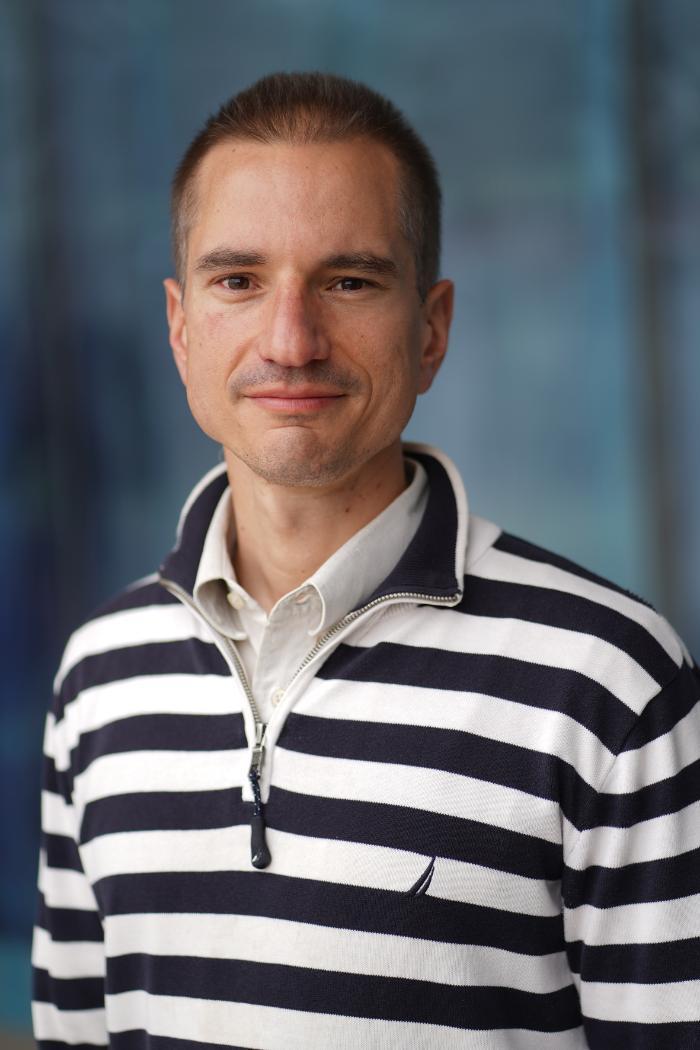Introducing Professor Julien Reboud
Professor Julien Reboud is a Biomedical Engineer whose work focuses on developing new technologies for point of care medical diagnostics.
Tell us about yourself
I am an Engineer, taught in France, in my hometown Grenoble and in Paris. In the Engineering Schools in France, the programme was very broad and mostly fundamental, but I was always rather interested in the applied side of the learning, particularly at the interface with Life Sciences. That led me to a Masters in Biophysics and subsequently a PhD in Bioengineering, a subject that I never left afterwards.
Staying with the applied dimension, we patented the technology from my PhD and I led a startup for a short time with the aim to help the pharmaceutical industry in their work of developing new drugs, during a pause in my studies. Unfortunately, this was wound up due to issues with licensing.
I then had the opportunity to do a post-doc in Singapore in an A-STAR research institute (with 75% of their budget funded by industry) on developing new sensors for medical diagnostics, acquiring a lot of knowledge around MicroTechnologies. We came back to Europe and Glasgow (moving from the sunshine and warmth of Southeast Asia into the gloom of Glasgow in November!) for a further post-doctoral position with Professor Jon Cooper, and with his fantastic mentorship and the support of the research group, I was able to obtain a fellowship and the academic position I hold now.
The work in the group in Biomedical Engineering has taken me across disciplines and allowed me to explore new areas both in Engineering (acoustics, plasmonics, synthetic biology, microfluidics, modelling, etc) and outside, around not only Life Sciences (for manipulating tissues and living cells for example) but also exposure to clinical and social sciences, a very motivating combination.
How would you describe your research interests and current work?
Our work is currently focused on developing new technologies for enabling medical diagnostics at the point-of-care, outside of hospitals, with a particular motivation to bring such capabilities to areas where they are not affordable, such as rural Africa for example. We use low-cost technologies, based on paper, similar to the lateral flow tests that we all had to do during COVID, and plastic cartridges (although we are trying to pivot into less carbon-intensive materials). The techniques are centered on detecting nucleic acids, often the DNA sequences of the genes of the infectious agents that are making patients sick, such as malaria for example (akin to the PCR test that we are now familiar with) but enabling the test to be performed without expertise or infrastructure.
The research is built in close collaboration with stakeholders in the field, enabling developments that are fit-for-purpose and ready for the next stages of translation. This work is led by Jon, in an EU-funded collaboration, which includes partners in Africa. The technologies have also been applied to other areas where the detection of pathogens is important, in a OneHealth context for example, where agricultural activities with animals can lead to pathogens moving across into human disease and vice-versa and we collaborate with teams in Southeast Asia on implementing them in aquaculture and dairy farming for example.
What would you most like people to know about you?
I am always motivated by a new problem to solve!
What do you like most about working in the ARC?
The building makes it easy to have lots of interesting conversations daily, but I would also say that I am keen on delivering outreach activities to invite the public within the research and the labs. These conversations are always engaged and often offer new perspectives. The glass walls around the labs on level 4 have been an excellent feature to bring the participants as close as possible to experiments without having to modify them for their delivery outside of a lab environment.
How can people get in touch with you?
Email me at julien.reboud@glasgow.ac.uk


